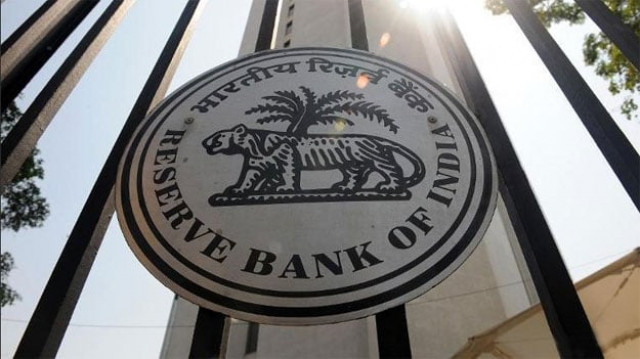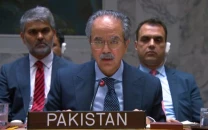India's central bank keeps interest rates unchanged
Move follows recent rate cuts designed to lower cost of investing and boost India's economy

PHOTO: AFP
The move follows recent rate cuts designed to lower the cost of investing and boost India's economy, a key priority for Prime Minister Narendra Modi.
The Reserve Bank of India (RBI) said the benchmark repo rate, the level at which it lends to commercial banks, would remain at 6.75 per cent as analysts had expected.
"Indicators suggest the economy is in the early stages of a recovery, though with some areas of continued weakness," RBI Governor Raghuram Rajan said in a statement following the bank's monetary policy review meeting in Mumbai.
"The uptick of CPI inflation excluding food and fuel for two months in succession warrants vigilance," he added.
Rajan has made controlling inflation a priority, setting a target of bringing it consistently below six per cent by January 2016 and to four per cent for the 2016/17 financial year.
India's consumer prices rose five per cent in October, below the target, but accelerating from a 4.41 per cent increase in September. "Inflation has turned up as anticipated, and is expected to rise further until December before plateauing," Rajan said in the statement.
A survey of 47 economists by Bloomberg had overwhelmingly predicted Rajan would hold rates after he surprised analysts in September with an aggressive 50-basis-point reduction, suggesting there would be little room for further easing in 2015.
The bank chief has already lopped 125 basis points off borrowing rates this calendar year in four separate cuts to bring the repo rate down to its lowest level in four years. Economic growth has notched 7.4 per cent year-on-year in the second quarter, outperforming China, data showed Monday.
Modi has focused on spurring economic growth since sweeping to power in a general election in May 2014 and India has now posted three straight quarters of growth above seven per cent.
But investors have raised concerns about the pace of promised economic reform needed to create jobs for India's tens of millions of young people.
They are hoping Modi's government will be able to reach an agreement with opposition parties and push reforms through the current session of parliament, including one that paves the way for a long-awaited national sales tax. Rajan also cited "weak" global growth and a flagging Chinese economy as reasons to remain cautious.
Analyst Arun Singh said the RBI had also chosen to wait to see whether the US Federal Reserve would hike rates later this month, as expected, before cutting again. "It makes sense to stick with the status quo until we get clarity," the senior economist at Dun & Bradstreet, told AFP.
After the RBI cut rates in January and March, it kept them unchanged in April, citing inflation concerns and a failure of most commercial banks to pass on lower loan rates to customers.
In June it snipped off a further 25 basis points before holding rates at its meeting in August and then slashed the repo rate the next month to its lowest level since March 2011. It is still much higher than compared to other major economies, with the United States and Japan at record lows of near zero per cent.


















COMMENTS
Comments are moderated and generally will be posted if they are on-topic and not abusive.
For more information, please see our Comments FAQ